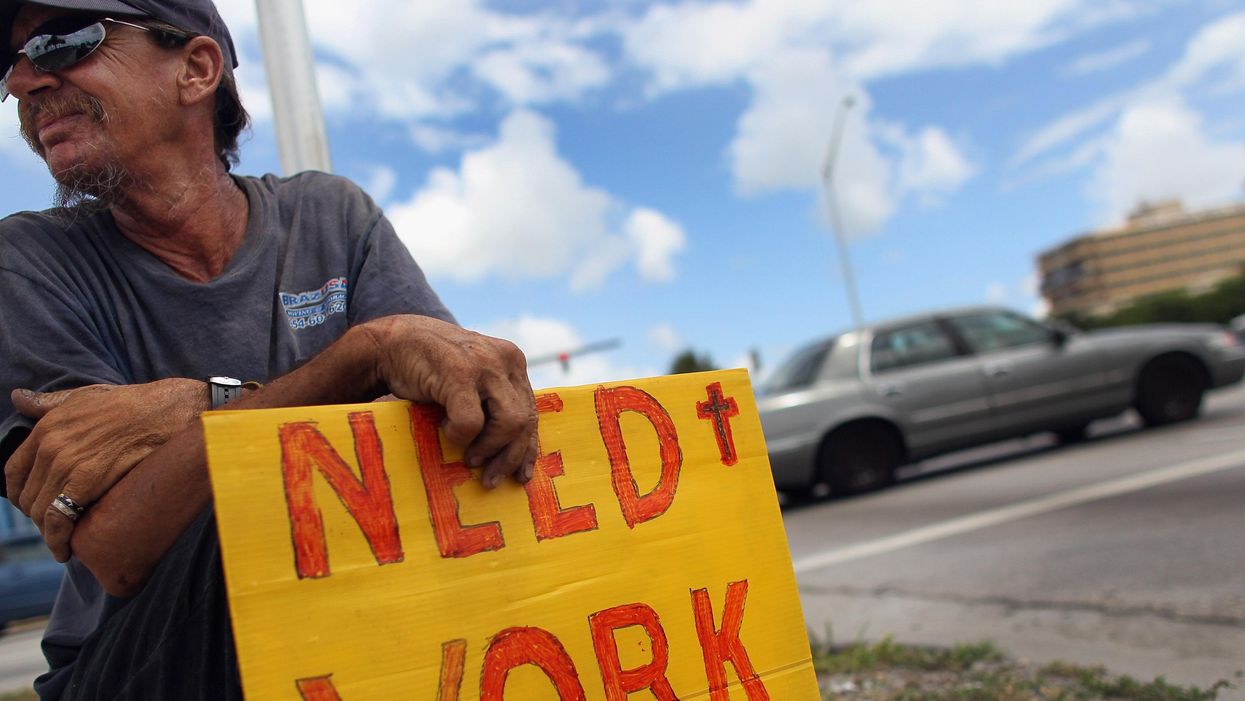
Photo by David McNew/Getty Images

Individuals who refuse to be vaccinated against the coronavirus may not be eligible to receive unemployment benefits, a KHOU-TV report finds.
KHOU's Mia Salenetri says that generally speaking, people fired for refusing required vaccines — including the new COVID-19 vaccine — can be denied unemployment benefits in some cases.
"Some who refuse [shots] may be looking forward to the support of unemployment benefits while they look for a new job that doesn't require vaccines. But for many of them, that might not be an option," Salenetri writes.
"Major corporations like Disney and Walmart say they will require COVID-19 vaccines for some employees," Salenetri writes. "In general, those fired for refusing can't get unemployment."
According to representatives at The Seltzer Law Firm and The Employment Law Group, in most areas of the country, if you are fired for breaking company policy — in the cases of Disney, Walmart, Google, and more refusing to provide proof of required vaccines — you are not eligible for unemployment payments.
Employment Attorney John T. Harrington told Salenetri that "[e]ven something as simple as a dress code" violation is considered company insubordination.
"It's misconduct, and it would likely disqualify you from receiving unemployment benefits," Harrington warned, and pointed out that in some cases, the only way to get around it is to provide a valid medical or religious exemption, which are determined with employers only on a case-by-case basis.
"We have received numerous inquiries from clients and potential clients about how courts are likely to view these situations," he added. "We've been advising them that if you have one of these two valid reasons to believe that you should be exempt from a vaccination requirement, you should assert them. But otherwise, companies are entitled to require that employees be vaccinated."
The report notes that if a company's vaccination policy is made clear to employees — as well as the repercussions of flouting the policy — and the employee still refuses, "the disqualification [for UC benefits] is the same as if they had broken any other company rule."
Attorney Diane Seltzer said, "In every claim for unemployment benefits, the employer has an opportunity to present the reasons for the separation. And an employer can choose not to respond. So if an employee is not truthful or not completely transparent when they apply for benefits, and the employer chooses not to contest it, the employee might get the benefits based on what they're representing."
Salenetri's report also cites some Maryland, Virginia, and Washington, D.C., unemployment compensation guidelines that point to "gross misconduct" — or willfully violating a company policy or rule — which can disqualify a worker from receiving state benefits.
"Gross misconduct is actually defined, at least in part, as an act which deliberately or willfully violates an employer's rule," Seltzer explained. "You can be terminated if you violate a rule, especially if it's intentional or deliberate."
Deliberately refusing to provide proof of a COVID-19 vaccination would certainly be considered "gross misconduct," Seltzer added